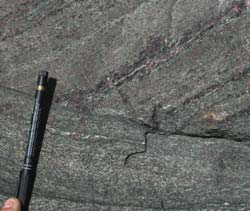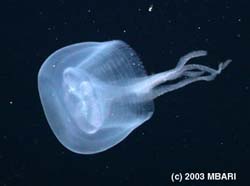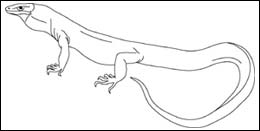
The deep layers of the Earth’s crust and the upper part of its mantle have been the target for investigation by a number of research groups at the EHU/UPV. This deep zone, and the processes that have taken place there in the past, can be investigated by means of studying those rocks which today are lying on the surface but which in past geological periods were at great depths.
On the Iberian Peninsula there are few places where one can find rocks which have been submerged at such depths (gr
NASA scientists have the first evidence more regional pollution lurks in clouds than in clear skies off the Asian coastline. This finding has implications for space-based attempts to monitor global pollution and for other populated regions around the world.
Scientists estimate that roughly two-thirds of Asian pollution from the Pacific Rim flows to the western, North Pacific Ocean under cloudy conditions. They based the study on direct measurements taken in and around clouds by aircraft ins

Wart-like bumps of stinging cells cover the feeding arms and bell of a newly described deep-sea jelly, published by MBARI biologists in this month’s issue of the Journal of the Marine Biological Association of the United Kingdom. This softball-sized, translucent jelly moves through the water like a shooting star, trailing four fleshy oral arms–but no tentacles–behind it. This and other unique features resulted in the jelly’s categorization as a new genus and species.
The MBARI researcher
Ruby deposits are the primary gem source in Central and South-East Asia. They are highly prized and have a special character: the rubies always occur as inclusions in marble. Geologists from the IRD and CRPG/CNRS (1) have investigated the tectonic and geochemical mechanisms involved in their formation and established a new model of how they generated. It involves feeder fluids resulting from solution of layers of salts present in the marble formations. These hot fluids were brought into circulation a
The fog today is hanging heavy on the Yangtze River making conditions for navigation rather difficult, however one ferry goes forward with no special worries. The captain is using the highly accurate satellite navigation system, EGNOS.
The European Geostationary Navigation Overlay Service (EGNOS) is an initiative of the European Space Agency (ESA), the European Commission and Eurocontrol.
This boat trip is the first trial testing satellite navigation with EGNOS in China and is the first

The mystery of where Earth’s first snakes lived as they were evolving into limbless creatures from their lizard ancestors has intrigued scientists for centuries. Now, the first study ever to analyze genes from all the living families of lizards has revealed that snakes made their debut on the land, not in the ocean. The discovery resolves a long-smoldering debate among biologists about whether snakes had a terrestrial or a marine origin roughly 150 million years ago–a debate rekindled recently